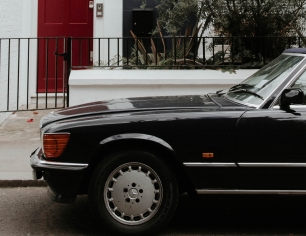Liability vs. full coverage car insurance: What's the difference?
Liability covers injuries and damage you may cause to others on the road, and it's required by law in most states. "Full coverage" auto insurance, while not a real insurance coverage, could include all state-required coverages like liability plus coverage for damages to your vehicle (typically via collision and comprehensive coverage). Note that asking for "full coverage" won't mean you're covered for everything under the sun.
Explore Progressive Answers' auto editorial guidelines to find out why you can trust the car insurance information you find here.
What's the difference between liability and full coverage?
When comparing the difference between "full coverage" and liability, keep in mind these basics:
- Liability coverage is for injuries and damage to others when you're at fault
- Full coverage often refers to liability and other state-required coverages plus damage to your car (comprehensive and collision), but it is not an actual insurance coverage
Note: "Full coverage" is neither definitive nor all-encompassing, and insurers and lenders may define it differently.
What's covered by liability?
Different states have different car insurance requirements, but almost all require drivers to carry liability coverage. Think of liability insurance as coverage in case you're responsible for an accident, particularly for others' bodily injuries and property damage. If you are found to be at fault in an accident, liability can pay for the other parties' damages up to your coverage insurance limits. Learn more about your state's car insurance requirements.
What's not covered with liability?
Liability doesn't cover injuries to you or your passenger, nor does it cover physical damage to your vehicle, even when you're at fault in the accident. Having only the minimum liability required by your state with no additional coverage leaves a large gap when it comes to repairing your vehicle after an accident. That's why many lenders might require "full coverage."
What's covered with "full coverage"?
"Full coverage" car insurance is a term often used by auto lenders as a requirement before you sign a car loan or lease. It typically refers to collision coverage and comprehensive coverage, plus any other state-mandated coverages (such as liability). On top of being covered by liability for bodily injuries and property damage you cause others, collision would cover damage to your vehicle caused by collisions with other vehicles or stationary objects, and comprehensive would cover unexpected events like falling objects or natural disasters.
Lenders may also require other coverages like roadside assistance to be included in "full coverage." Since full coverage isn't an actual insurance product, talk with your lender and insurer about exactly which coverages are required and right for your needs.
What's not covered with "full coverage"?
Your medical expenses and your passengers' medical expenses are not covered by liability, collision, or comprehensive coverages. Medical bills can be covered by purchasing medical payments coverage or personal injury protection coverage. Uninsured motorist insurance could provide coverage if another driver with inadequate or no insurance is at fault. Uninsured motorist coverage may or may not be required in your state.
What's the cost of liability vs. full coverage?
The cost of liability coverage could be higher or lower than the cost of carrying coverage for physical damage (comprehensive and collision). There are a number of factors that impact the cost of a particular coverage. In the case of liability, a big factor is your driving history. If you have a history of accidents and speeding violations, you could pay more for liability to offset the risk of insuring you.
For physical damage coverage, the make and model of the vehicle you drive is a big cost factor. More expensive vehicles tend to cost more to repair or replace, which could mean paying more for comprehensive and collision. You can typically see how much each auto insurance coverage costs when you get a quote, making it easy to compare costs before buying a policy.
Full coverage vs. liability car insurance: Which do I need?
In most states, you need liability coverage because it's required by state law. Even in the states that allow you to forgo liability coverage, it can still help protect your personal finances if you cause an accident that results in injuries to someone else or damage to their car or property.
But do you need full coverage car insurance? Your lender will likely require comprehensive and collision coverages when you lease or buy your car via a loan. If you don't have a car loan or lease, it depends on the peace of mind you're seeking — and perhaps the value of your car. Adding comprehensive and collision coverage costs more than minimum liability coverage since it provides significantly more protection. And you may be willing to pay the higher premium if you wouldn't be able to replace your car out of pocket if you cause an accident.
Let your insurer help run the numbers, including determining the value of your car. Compare your vehicle's replacement value to the cost of adding comprehensive and collision, and take into consideration any deductible.
Get the right auto coverage from Progressive
New Progressive customers
Call 1-866-749-7436 or get a car insurance quote online and we can help you choose the right coverage for your needs.
Current Progressive customers
Log in to your policy or call us at 1-866-749-7436 and make sure your coverages are to your liking.

Get the right coverage for your needs









